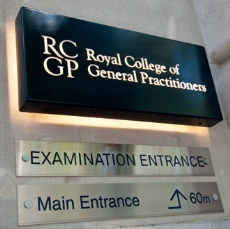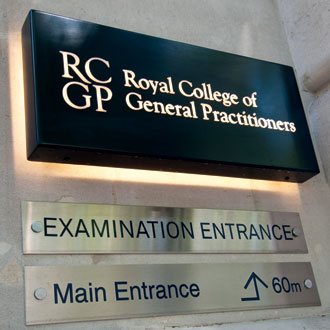
The cost of the MRCGP exam is a major issue for GP trainees and the RCGP has struggled to justify its fees after recently being challenged on the issue.
Currently, trainees pay £530 for each attempt at the applied knowledge test (AKT) and £1,780 for the clinical skills assessment (CSA), with small discounts for college membership.
But the fees are high compared with other colleges’ entrance exams and a Pulse analysis of the RCGP’s official accounts has raised questions about the net income of £10m from the exam it has declared over the past five years.
The BMA has also voiced concerns about the rising costs of the exam and the lack of transparency around the income generated by the college, saying ‘GP trainees need to have confidence they are getting value for money’.
GPC trainee subcommittee chair Dr Donna Tooth confirmed the BMA had ‘repeatedly attempted’ to get an explanation about how the MRCGP fees are calculated, to no avail.
After Pulse published its analysis, the RCGP responded robustly, claiming the MRCGP was ‘cost neutral’ overall and that not all expenses related to the exam were recorded in the official accounts.
Honorary treasurer Dr Helen Stokes-Lampard said: ‘The figures only indicate the obvious costs of examinations and do not take into account the considerable overheads involved with running a professional licensing examination, such as the MRCGP assessment.
‘The exam is cost neutral in that any income generated is wholly spent on costs associated with essential aspects of the delivering the MRCGP, without which it could not adequately function or develop in line with ongoing reviews of systems and adherence to evolving GMC requirements.’
But the reality of the situation is more complicated. The college later gave figures to Pulse showing it had actually made a loss from the MRCGP over the past five years, although this included new unaudited data from 2014/15.
The new figures show that from 2010 to 2014, the college made a small surplus of £527,000 from the exam, but this was wiped out by a £1.3m loss in 2014/15, due to a fall in candidate numbers.
However, the 2014/15 accounts have yet to be approved by the college’s trustee board or auditors, so they cannot be shared in full, and the RCGP has – despite several requests from Pulse – yet to explain the ‘considerable overheads’ that do not appear in the official accounts.
The college said it was ‘difficult to provide a meaningful or accurate explanation without sharing confidential information, such as that about salaries or staffing arrangements, and, in some cases, commercially sensitive data’.
But Pulse has obtained a report from 2011 that did reveal the full costs of the exam, including an expense of £67 per candidate for ‘catering and other costs’, £165 per candidate towards wages, travel and training expenses for CSA actors, and £478 to backfill examiners for leaving their practices and cover their ‘travel and subsistence costs’.
These costs are four years old and many – such as rent for examinations space – are likely to have changed as the RCGP’s new headquarters has a purpose-built exam suite. But MRCGP fees are high compared with comparable exams; for instance the MRCS costs £1,415 and the MRCPsych a total of £1,645.
Discussions between the RCGP and the BMA on the issue are ongoing, and GP trainees saving for their exam fees will be interested in the outcome.
GP trainer view – ‘The cost is a huge issue’

Most trainees are very anxious about the MRCGP, especially the clinical skills assessment, and the examination fees play a big role in creating that anxiety.
Exam costs are a huge issue for all trainees and even more so for those who have needed multiple sittings.
With the MRCGP being an exit examination, there is no scope for trainees to spread this cost over training years. I have yet to come across a trainee who feels that the examination costs are justified.
Recent controversy and the evidence published in Pulse have created even more uncertainty. I think there needs to be more clarity on why the examination fees need to be so high. It will only help us understand the college’s position.
We need not only to attract more doctors into general practice but retain more trainees, and part of that has to be reasonable exam fees, especially as one cannot practice without membership.
I hope the college will be able to contain and curtail the fees by bringing in efficiency savings.
Dr Kamal Sidhu is a trainer in County Durham
Pulse July survey
Take our July 2025 survey to potentially win £1.000 worth of tokens












